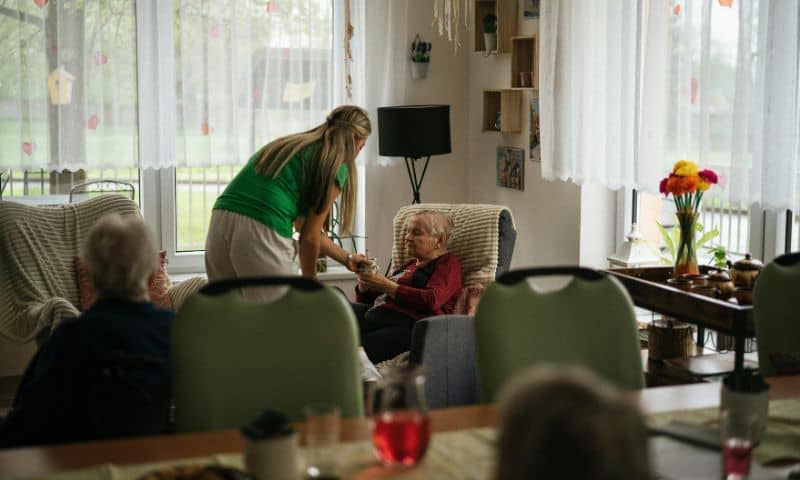How to Become a Caregiver for a Family Member in Minnesota or Wisconsin

Making the decision to become a caregiver for a loved one can be difficult. You may be taking on new responsibilities while also coming to terms with changes in your family member’s health. However, providing care for someone you love can also be incredibly rewarding. It allows you to spend more time together and ensure your family member gets the support they need.
If you’ve decided to become a caregiver, there are several steps to take in order to prepare yourself and make the transition as smooth as possible. Here’s what you need to know to get started as a family caregiver.
Step One: Assess Your Loved One’s Needs
The first step is gaining a clear understanding of the level and type of care your family member requires. Have open and honest conversations about their current condition, daily abilities, and preferences for care.
Some key questions to discuss:
- What medical issues or disabilities does your loved one have? How might their abilities or needs change over time? Understanding their prognosis will allow you to prepare accordingly.
- What personal care do they need help with? This could include bathing, dressing, grooming, using the restroom, and taking medications. Knowing the specific daily tasks involved allows you to determine if you require any training to perform them safely and comfortably.
- What household activities do they need assistance with? Meal preparation, cleaning, laundry, shopping, transportation, and managing finances may need to be taken over or shared.
In some cases, a medical evaluation from their doctor may be needed to fully assess capabilities and needs. Any physical or neurological disabilities and their impact on daily functioning should be well-documented.
Being as informed as possible allows you to make a comprehensive care plan. Don’t be afraid to ask questions—knowledge is power when it comes to caregiving.
Step Two: Become a Paid Caregiver
Caring for a relative in need is a privilege, but it can also become highly demanding over time. If your loved one qualifies for Medicaid, you may want to consider Minnesota’s Personal Care Assistance (PCA) program, which pays family members to provide caregiving services so you can sustainably continue living at home together.
PCA eligibility requires that your loved one:
- Resides in the community, not a facility
- Can direct their own care or assign a representative
- Qualifies healthwise through an assessment
Services you would provide include daily living activities like dressing, meals, transfers, instrumental tasks like shopping, health procedures like medications, and monitoring behaviors. Your relative chooses either the traditional agency route or PCA Choice, where they officially employ you, granting more control.
Getting certified as a paid family PCA through Minnesota’s Department of Human Services means caregiving costs shift from 100% out-of-pocket to partly reimbursed by Medicaid. This ensures the arrangement stays mutually meaningful.
Our elder law team helps families through enrollment details so the focus stays on cherishing moments together. If your loved one is not yet on Medicaid, or you are not sure if they qualify, we can help with that, also. We can also help you get additional assistance through Medicaid, including respite care for your loved one.
Step Three: Get Your Loved One’s Legal and Financial Affairs in Order
A crucial part of becoming a dedicated caregiver involves ensuring your family member’s important legal and financial matters are in responsible order in case decision-making capacity declines.
Our compassionate elder law attorneys can advise on the following:
- Reviewing and updating powers of attorney for financial matters and health care directives for medical choices if incapacitation occurs, permitting you to act on their behalf. Obtaining guardianship/conservatorship if the documents are inadequate and your loved one has lost capacity.
- Updating wills, trusts, and related documents to accurately reflect their wishes, protect their assets, and minimize expenses.
- Evaluating eligibility for Medicaid, Medicare, Social Security, and veterans benefits offsetting escalating care costs
- Understanding provisions of any long-term care insurance policies to maximize claims and reimbursements
- Gaining properly authorized status on bank accounts and credit cards to transparently handle bills
- Putting identity fraud precautions in place and reporting any suspected asset scams
Taking these proactive administrative steps allows you to fully support your loved one’s needs now and into the future. Our legal team helps families navigate the complex preparations to get affairs in order completely, so care focuses on cherished moments together instead of paperwork.
Step Four: Prepare Your Home
If you will be providing in-home care to your loved one, you may need to make some adjustments around the house. Depending on their level of mobility, you may need to:
- Reduce hazards like tripping risks from rug
- Add grab bars in bathrooms
- Improve lighting
- Install an emergency response system
- Secure medications
Additionally, wheelchairs, lift chairs, hospital beds, and other equipment are often necessary. Tools like mobility canes, shower seats, dressing aids, and modified eating utensils can help with daily tasks. Work with your doctor and insurance company to obtain needed items. Adaptations to make the home safer and more caregiving-friendly are well worth the investment and effort.
There may be government funds available to pay for improvements to your home related to your loved ones’ care needs. Our elder law team can help you determine if your loved one qualifies for those funds.
Step Five: Manage Medications and Medical Care
Caring for someone with health issues means paying close attention to their medical needs. This includes organizing all their medications properly and understanding what they are for. You may need to create charts of what medicines to give each day and when. Bringing your loved one to their doctor visits is also key, as is keeping very careful records of medical advice, test results, what symptoms come up, and how they are doing overall.
You have to make sure oxygen, bandages, monitors, and equipment stay stocked up and you know how to use them. Also, watch closely for any changes in energy, mood, or behaviors and report these to doctors right away so they can adjust care in time. Ask physicians any questions you have between appointments, too. Staying on top of everything medical helps avoid big problems.
Step Six: Consult an Elder Law Attorney
Becoming a caregiver for someone you love is a major commitment but also a profound opportunity. With proper planning and support, family members can provide a level of personalized care, empathy, and companionship beyond anything a paid professional can offer. It’s an act of devotion.
There are resources to help every step of the way. At Safe Harbor Estate Law, we assist families with planning for current and future care needs, including protecting eligibility for public benefits like Medicaid. We can:
- Advise on coordinating Medicaid, Medicare, and other benefit programs
- Advise you on housing options that qualify for Medicaid
- Assist in reviewing or drafting healthcare advance directives around treatment preferences
- Establish long-term financial power of attorney authorizations
- Develop a Medicaid Asset Protection Plan and ensure estate planning documents are updated for asset protection strategies.
- Consult evaluating if long-term care insurance policies provide coverage
- Field pressing caregiving questions and offer expertise through challenges
We take care of the administrative work so that you can focus on cherishing time with loved ones. Contact us today for more information on how we can support you and your family.



